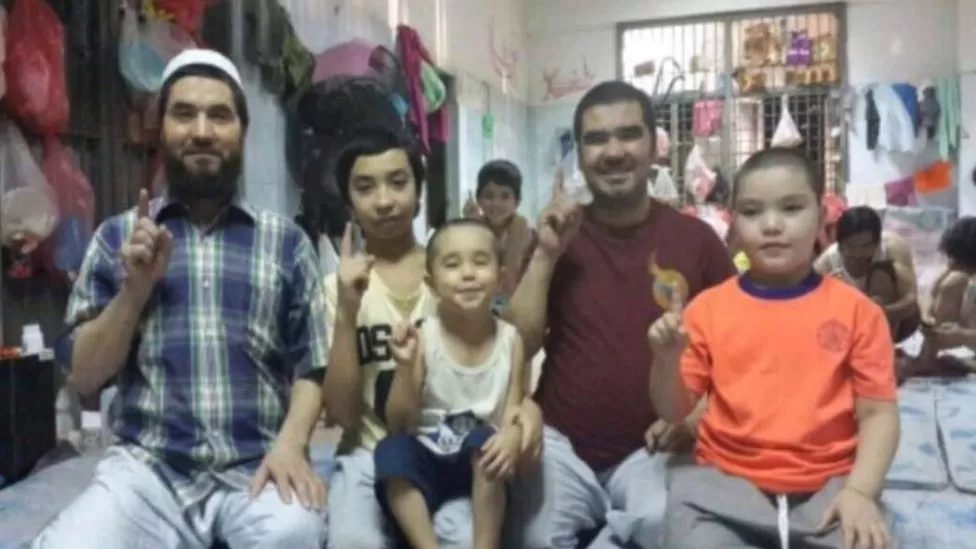The recent death of a Uyghur asylum seeker detained in the Bangkok Immigration Detention Centre (Suan Phlu) has prompted renewed calls for Thailand to release a group of 49 ethnic Uyghurs who have now been detained in the country for nine years. Aziz Abdullah, 49, died on 11 February after he collapsed in a cell […]
Alternatives to Detention
Oral Submission: Statements Concerning the CMW’s General Comment No.6 on the Convergence Between the Global Compact for Migration and the Convention
The GDP’s Executive Director Michael Flynn spoke at the UN Committee on Migrant Workers’ half day of general discussion on its draft General Comment No.6 on the convergence between the convergence between the Global Compact for Migration (GCM) and the Migrant Worker Convention. Reiterating points raised by the GDP in its written submission to the CMW, Flynn provided comment on three aspects of the GCM that concern migration-related detention – alternatives to detention, the detention of children, and criminalisation of migration-related violations. […]

GCM 13 webinar: Alternatives to detention
A global network of migrants-rights organisations held a webinar to discuss best approaches for building on the the Global Compact for Migration’s Objective 13 on ensuring that immigration detention is used as a last resort and implementing alternative measures. The webinar is part of a free online certificate programme on the GCM that is aimed […]

Statement by Michael Flynn on CMW General Comment #5
While much of the conversation today about how to treat migrants revolves around developing better management strategies and improving service provisions, the Committee on Migrant Workers with this General Comment affirms loudly and clearly that the most important conversation we should be having is how to preserve migrants’ fundamental rights. […]

NEWSLETTER: Human Rights Concerns in Papua New Guinea, Hungary, Sudan, Greece, and Chile
Ahead of the UPR’s 39th Session, the GDP has submitted information relating to detention practices, asylum processes, and border enforcement measures in Papua New Guinea, Hungary, Sudan, and Greece. […]

Webinar: “GCM Objective 13: Use Immigration Detention as a Measure of Last Resort and Work Towards Alternatives”
On 24 November, the GDP’s Executive Director joined a panel of experts to discuss the Global Compact on Migration’s Objective 13 (“Use immigration detention as a measure of last resort and work towards alternatives”), organised by Migrant Forum Asia (MFA). The panellists, who also included William Gois (MFA), Verena Knaus (UNICEF), Dato’ Sri M. Ramachelvam […]

The Debate over Alternatives to Immigration Detention of Children
This essay addresses challenging questions surrounding efforts to promote “alternatives to immigration detention” in the context of children in administrative removal proceedings. Although there are important provisions in international law that provide protections for children in these procedures and arguably limit states’ resort to detention, there is no provision that expressly forbids the immigration detention […]

Thinking Beyond Detention
The GDP’s Michael Flynn participated in the University of Oxford’s Border Criminologies 5th birthday conference—“Beyond Critique”—on 19/20 April 2018. With support from the Bonavero Human Rights Institute at the University of Oxford and the Migration Policy Centre at the European University Institute, the two-day conference brought together an international group of artists, scholars, policy-makers, practitioners, […]
Immigration Detention of Children: Coming to a Close?
Immigration Detention of Children: Coming to a Close? The GDPs Michael Flynn participated in this two-day conference co-hosted by the Council of Europe and the Czech Ministry of Justice (25-26 September 2017). “Are There ‘Alternatives’ for Children?” By Michael Flynn Summary: Is it possible to develop “alternatives to detention” in a way that does not […]

Putting Immigration Detention in Interdisciplinary Perspective
What can we learn from the interdisciplinary study of immigration detention regimes? Michael Flynn explains in this essay for Oxford University’s “Border Criminologies” research network. […]




